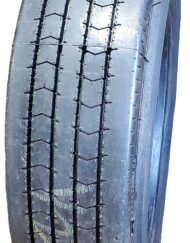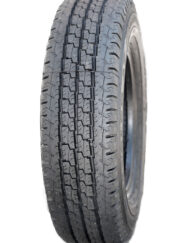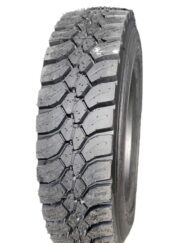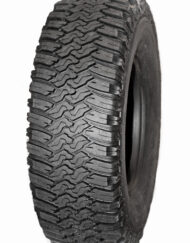Retread Tires: The Greenest of Green
What’s black and tread and green all over? A recapped tire from Tire Recappers! Whether you want to keep your Prius in the green or are looking for ways to save millions on your commercial fleet’s tires, we’ve got the answers you’re looking for.
In this post, we’ll explain why retread tires are the most environmentally friendly of all recycled products and how they can save your organization lots of green. (And by “green” in this instance we mean dollars!)
Why Retread Tires are Great For the Environment
Aside from the fact for every tire that hits the retreading process is a tire that’s not taking up space in a landfill, there are plenty of compelling reasons why retread tires are an environmentally sound option. A fleet that uses just 100 tires a year can help save nearly 1,500 gallons of oil each year. Given the number of tires that are retread in the United States each year, hundreds of millions of gallons of non-renewable oil are saved every year. Not only is that great news for the environment, but it’s great news for America, as it helps reduce our dependence on imported oil (California Green Solutions).
Did you know that there are two to three billion tires in landfills across the country and that approximately one discarded tire is generated per person every year (Environmental Law Alliance)? That’s a lot of waste! Here are a few more stunning stats about tires and the environmental benefits of retread tires.
- It takes approximately 22 gallons of oil to manufacture one average size truck tire.
- Since most of that oil is found in the tire casing, which is reused in the retreading process, only about 7 gallons of oil are needed to retread that same tire (Tire Retread & Repair Information Bureau).
- The EPA estimates more than 70% savings in oil used for a retread tire as compared to new tires.
- Retreaded tires are one of the most environmentally friendly of all recycled products, containing one of the highest post consumer contents (Tire Review).
- Millions of tires that would otherwise end up in landfills enjoy thousands of additional miles as recapped tires.
- High-quality casings can be recapped several times.
- Retread tires reduce the chances of open tire pile fires which are difficult to extinguish and are incredibly harmful to the environment. Tire fires release a thick, noxious smoke that contains cyanide, carbon monoxide, sulfur dioxide, and more.
- A single tire casing can see more than 500,000 miles of use in its lifetime (Bandag).
- Retreading reduces emissions by 30% (Truckinginfo.com)
How Retread Tires Help Fleets Lower Costs
Rolling Resistance
There’s really no debate: retread tires are better for the environment than new tires. However, did you know that retread tires may be even more fuel-efficient than new tires? This is especially true when you compare a high-quality, locally grown retreads to poorly made, entry-level imported tires.
Retread tires manufactured by reputable companies in the USA meet rolling resistance levels that achieve better mileage numbers than low-cost, new rubber alternatives.
In a study conducted by Bandag, they found that “a B197 Fueltech tread paired with an R197 Ecopia casing has a Crr index 40% better than certain cost-focused, import tires that were tested. If you were to use those B197 Fueltech/R197 Ecopia retreaded tires in the trailer position instead of the low-cost new tires, you could save up to $1,840 per truck per year.”
More Miles, Less Money
The Bandag study, authored by Jay Golden of Duke University and Rob Handfield of North Carolina State University also noted that the reliability of recap and new tires was virtually indiscernible and noted that the New York City Department of Sanitation saves $1.4 million dollars per year with retread tires. Other major fleets that rely on retread tires include USPS, FedEx, and UPS.
“Every major truck tire manufacturers’ tires are designed for multiple lives, and to not take advantage of that fact and not retread an expensive tire after the original tread is worn is simply silly and wasteful,” according to Harvey Brodsky, TRIB’s Managing Director. “It’s really ridiculous when one considers that the tire has one or more useful lives left,” he added (Tire Review).
Ready to take your fleet into the green? Contact Tire Recappers today!




